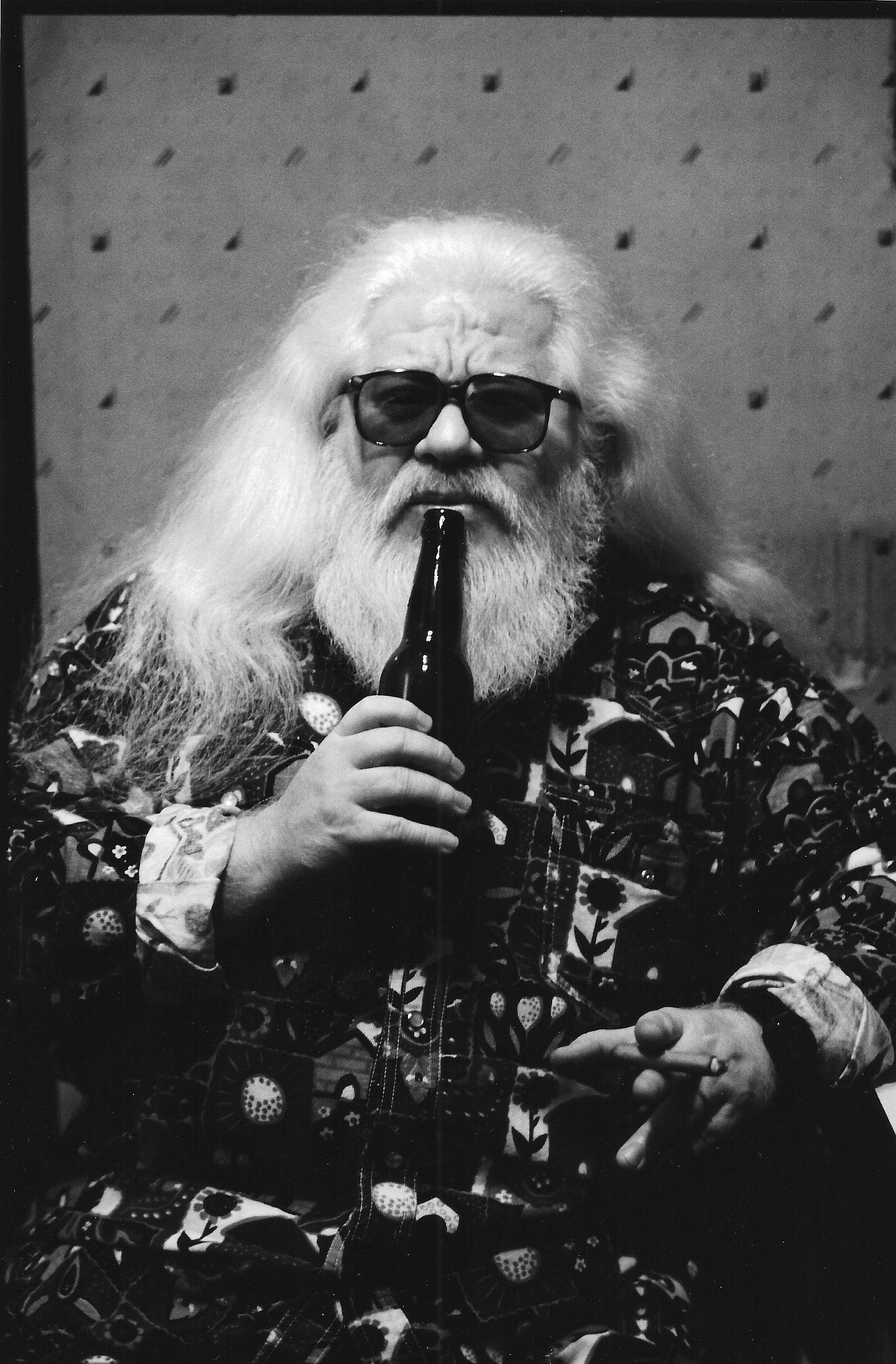Hermeto Pascoal backstage at the Blue Note, NYC, 1991. Photo by Tim Geaney
Over my years of working closely with Hermeto, I noticed how much he senses the atmosphere in a concert. He has developed a set of intuitive antennas, which are always turned on. He can feel what kind of public is listening to him. You can say that he hears the audience hearing, and is also able to detect the cultural and linguistic vibration of whatever city he might be performing in.
This causo took place in Istanbul, Turkey, in 1986. It was our first time playing in that country, and we were all excited to experience the city, including many cuisines, customs and much more.
Of course, I also found out that Hermeto is a very savvy businessman, who knows how to negotiate with anyone, regardless of any language or cultural barrier.
Once we took Hermeto to the big Covered Bazaar, one of the most popular spots in Istanbul. We wandered over to a leather goods merchant in his stall. Without speaking any English or Turkish, Hermeto immediately could feel that the merchants there loved to haggle and negotiate prices, just like people liked to do back in the hinterlands of Alagoas, where he lived until the age of 14. Hermeto picked up three or four leather jackets. He would then make an offer in Portuguese, I would translate it in English (along with the currency conversion) to our interpreter, who would convey it in Turkish to the seller, and back and forth. This took a long time, and by the end, Hermeto had convinced the merchant to give him a couple of extra jackets. Everyone was enjoying the exchange tremendously, and when we left, one leather jacket was left behind. The seller found out where our hotel was, and he took the extra jacket there himself, as a gesture of recognition to Hermeto’s bargaining power.
Now the real story took place when we played out concert at the Istanbul Jazz Festival. We played two sets, with a change of public between them. During the first set, Hermeto did his customary (but always unique) solo piano improvisation, dedicating the music to the Turkish public. He always improvised freely, but somehow what he played touched the Istanbul crowd in such a way that they went crazy. People told me later that they felt that Hermeto channeled the Turkish spirit in such a way that the crowd would not leave, even though there were hundreds of people outside waiting to come in for the second show. We had to play a couple of extra tunes and then send them home with a beautiful ballad, so the house could be turned over. What remained in my memory is the amazing ability of a gifted musician like Hermeto to not only capture the spirit of the public, but to translate it into a flowing improvisation that deeply touched everyone in the audience.
In all the years I worked with Hermeto, instances like this were actually very common. Hermeto’s intuitive antennas can pick up the subtlest of signals from the audience. He lets those signals drive his improvisations, with the result that everyone’s mind gets blown by his extraordinary musicality. His genius resides in his capacity to express his outer and inner environments in a way that reaches out to musicians and non-musicians alike.
In the beginning of my time with Hermeto, I would be baffled by some of his musical choices.
When we recorded Zabumbê-Bum-Á in Rio in 1978, there was a solid wooden table at the snack bar in the studio. Hermeto was tapping on it for a while, and suddenly he said: “Let’s bring this table inside the recording room.” We laughed at the idea, but he was dead serious. The engineer set up some microphones, and Hermeto recorded more than 5 minutes’ worth of table thumping, which to me was incomprehensible. He then proceeded to play several saxophone tracks, alto and tenor, and still added some crazy electronic sounds from a little box that a friend of his built. It was basically a rudimentary synthesizer, an oscillator bank with knobs which allowed Hermeto to combine pitches seamlessly. The result of that session was Suite Paulistana, a depiction of the city of São Paulo with its metropolitan sounds and textures:
I confess that I did not get that track at first. We had so much music to play, and on my first professional recording session, I could not understand why Hermeto would use such a big chunk of time on a side of a vinyl record to create that craziness. I was witnessing Hermeto’s powerful intuition at work. He never questions why he does things – he does them, and always with impeccable technique and sense of color and texture in the mixes. That trust in one’s intuition is one of the biggest lessons I learned from him.






God bless Hermeto, such a sense of pure fun.
He's an unusual guy.